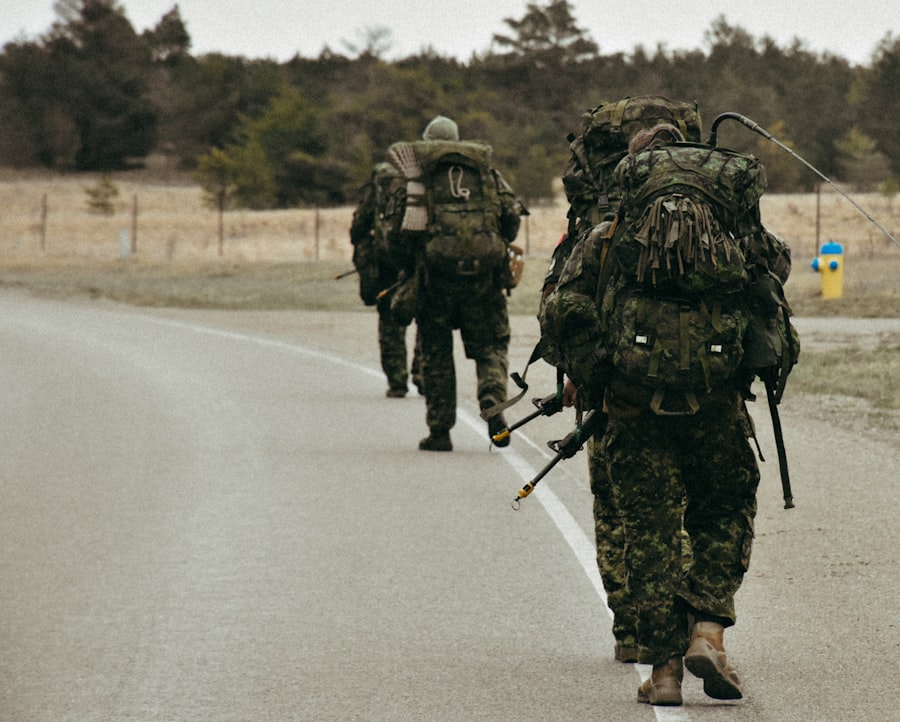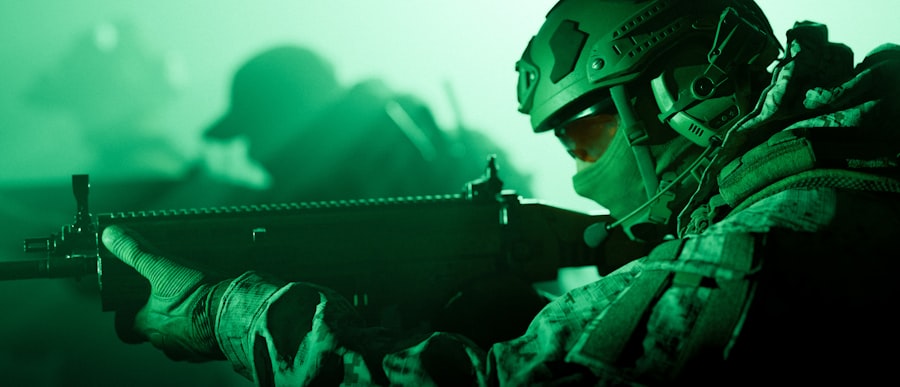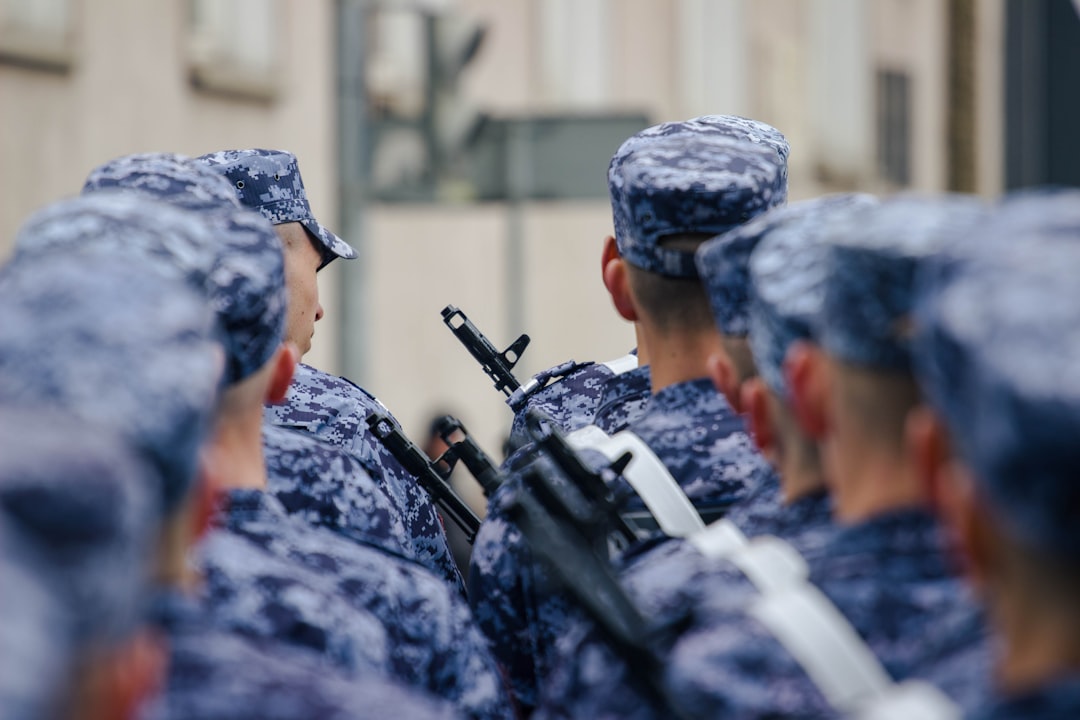Civilian control of the military is a cornerstone of democratic governance, ensuring that military power remains subordinate to elected officials. This principle is vital for maintaining the balance of power within a state, preventing the rise of authoritarianism, and safeguarding individual liberties. When civilians lead military decisions, it reflects the will of the populace, reinforcing the idea that the military exists to serve the nation rather than dominate it.
This relationship fosters accountability, as civilian leaders are answerable to the electorate, ensuring that military actions align with national interests and ethical standards. Moreover, civilian control is essential for effective governance in times of crisis. When military leaders operate independently, there is a risk of decisions being made based on strategic interests rather than the broader implications for society.
Civilian oversight helps to integrate diverse perspectives into national security discussions, allowing for a more comprehensive understanding of the potential consequences of military action. This dynamic is particularly crucial in an era where global conflicts can have far-reaching effects on domestic stability and international relations.
Key Takeaways
- Civilian control of the military is essential for a healthy democracy and to prevent military intervention in political decision making.
- JFK emphasized the importance of civilian control and sought to balance military advice with civilian decision making.
- The president plays a crucial role in maintaining civilian control and must carefully consider military advice while making national security decisions.
- The Cuban Missile Crisis provides valuable lessons on the importance of civilian control and the impact of strong leadership in national security decision making.
- JFK’s leadership during the Cuban Missile Crisis demonstrated the positive impact of civilian control and the importance of strong leadership in national security decision making.
JFK’s Approach to Civilian Control
John F. Kennedy’s presidency marked a significant period in the evolution of civilian control over the military. He understood that effective leadership required not only a strong grasp of military strategy but also an unwavering commitment to civilian oversight.
Kennedy’s approach was characterized by his willingness to engage with military advisors while maintaining ultimate authority over decisions. He recognized that the complexities of Cold War geopolitics necessitated a collaborative relationship with military leaders, yet he was determined to ensure that civilian perspectives remained at the forefront of national security policy. Kennedy’s handling of the Bay of Pigs invasion serves as a poignant example of his approach to civilian control.
Despite receiving extensive military advice advocating for a more aggressive strategy, he ultimately made the decision to proceed with caution. This choice reflected his belief in the importance of civilian judgment over purely military considerations. The failure of the invasion underscored the necessity for civilian leaders to critically evaluate military recommendations and consider the broader implications of their decisions.
Balancing Military Advice with Civilian Decision Making

The delicate balance between heeding military advice and exercising civilian decision-making authority is a challenge faced by leaders throughout history. Kennedy’s presidency illustrated this tension vividly, as he often found himself navigating conflicting perspectives from his advisors. He understood that while military expertise was invaluable, it was essential to filter that advice through a civilian lens to ensure that decisions aligned with democratic values and public sentiment.
Kennedy’s establishment of the Executive Committee of the National Security Council (ExComm) during the Cuban Missile Crisis exemplified his commitment to this balance. By bringing together a diverse group of advisors, including military leaders and civilian experts, he created an environment where multiple viewpoints could be considered. This collaborative approach allowed him to weigh military options against potential diplomatic solutions, ultimately leading to a resolution that prioritized de-escalation over confrontation.
The Role of the President in Maintaining Civilian Control
| Role of the President | Maintaining Civilian Control |
|---|---|
| Commander-in-Chief | Ensures military leaders follow civilian direction |
| Appoints Defense Secretary | Ensures civilian leadership at the top of the military |
| Approves military budget | Controls military spending and resources |
| Decides on military action | Ultimate authority on use of military force |
The president plays a pivotal role in upholding civilian control over the military, serving as both commander-in-chief and chief diplomat. This dual responsibility requires a nuanced understanding of military operations while remaining firmly rooted in democratic principles. A president must be willing to assert authority over military leaders, ensuring that their recommendations do not overshadow the broader objectives of national policy.
Kennedy’s leadership style exemplified this dynamic, as he often sought input from his advisors but retained final decision-making power. His ability to navigate complex situations while asserting civilian authority was crucial during moments of crisis, such as the Cuban Missile Crisis. By prioritizing civilian oversight, he reinforced the notion that military power should be wielded in service of democratic ideals rather than as an unchecked force.
Lessons from the Cuban Missile Crisis
The Cuban Missile Crisis stands as a defining moment in Kennedy’s presidency and offers critical lessons about civilian control in times of crisis. Faced with the imminent threat of nuclear confrontation, Kennedy demonstrated remarkable restraint and deliberation. Rather than succumbing to pressure from military advisors advocating for immediate airstrikes, he opted for a measured response that prioritized diplomacy and negotiation.
This approach highlighted the importance of maintaining civilian control during high-stakes situations. Kennedy’s decision to establish a naval blockade instead of launching an attack allowed for a peaceful resolution without escalating tensions further. The crisis underscored that effective leadership requires not only strategic acumen but also a commitment to democratic principles and civilian oversight.
The Impact of JFK’s Leadership on Civilian Control

Kennedy’s leadership had a lasting impact on the concept of civilian control within the U.S. government. His presidency reinforced the idea that effective governance requires collaboration between civilian leaders and military advisors while maintaining clear boundaries regarding authority.
By navigating complex geopolitical challenges with a focus on civilian oversight, he set a precedent for future leaders grappling with similar dilemmas. Moreover, Kennedy’s approach fostered a culture of accountability within national security decision-making processes. His willingness to engage in open dialogue with advisors while asserting his authority encouraged subsequent presidents to adopt similar practices.
This legacy continues to shape contemporary discussions about the role of civilian control in national security matters, emphasizing the need for leaders to prioritize democratic values in their decision-making processes.
Challenges to Civilian Control in the 21st Century
In the 21st century, challenges to civilian control have become increasingly pronounced as global conflicts evolve and technology advances. The rise of non-state actors, cyber warfare, and asymmetric threats complicate traditional notions of military engagement and decision-making. As military capabilities expand, there is a risk that civilian leaders may become overly reliant on military expertise, potentially undermining their authority.
Additionally, the rapid pace of information dissemination through social media and 24-hour news cycles can create pressure on leaders to respond quickly to crises without fully considering the implications of their actions. This environment can blur the lines between civilian oversight and military influence, raising concerns about accountability and transparency in national security decision-making.
The Role of Congress in Ensuring Civilian Control
Congress plays a crucial role in maintaining civilian control over the military by exercising its constitutional authority to declare war and oversee defense spending. This legislative oversight is essential for ensuring that military actions align with national interests and reflect the will of the people. By holding hearings, conducting investigations, and engaging in public discourse about national security issues, Congress can help reinforce the principle of civilian control.
However, challenges persist in this area as well. Partisan divisions and political polarization can hinder Congress’s ability to effectively oversee military actions and hold executive power accountable.
The Role of the Media in Holding Government Accountable
The media serves as a vital check on government power, playing an essential role in holding both civilian leaders and military officials accountable for their actions. Investigative journalism can uncover abuses of power, inform public discourse, and promote transparency in national security decision-making processes. A free press is fundamental to democracy, providing citizens with information necessary to engage in informed discussions about their government’s actions.
In recent years, however, challenges have emerged regarding media credibility and public trust. The proliferation of misinformation and partisan news outlets can complicate efforts to hold government accountable effectively. As citizens navigate an increasingly complex media landscape, it becomes imperative for journalists to uphold ethical standards and prioritize factual reporting on national security issues.
The Need for Transparency and Accountability in National Security Decision Making
Transparency and accountability are essential components of effective governance in national security matters. Citizens have a right to understand how decisions affecting their safety and well-being are made, particularly when it comes to military actions that may have far-reaching consequences. By fostering an environment where information is shared openly and decisions are subject to scrutiny, governments can build trust with their constituents.
Moreover, transparency can help mitigate potential abuses of power by ensuring that decision-makers are held accountable for their actions. When citizens are informed about national security policies and their implications, they are better equipped to engage in meaningful dialogue with their elected representatives and advocate for policies that align with democratic values.
Applying JFK’s Lessons to Contemporary National Security Issues
The lessons learned from JFK’s presidency remain relevant today as leaders grapple with complex national security challenges. His commitment to maintaining civilian control while engaging with military advisors serves as a guiding principle for contemporary decision-makers navigating an increasingly volatile global landscape. By prioritizing collaboration without relinquishing authority, current leaders can ensure that national security policies reflect democratic ideals.
Furthermore, Kennedy’s emphasis on restraint during crises underscores the importance of thoughtful deliberation in high-stakes situations. In an era marked by rapid technological advancements and evolving threats, leaders must remain vigilant against impulsive decisions driven by fear or pressure from military advisors. By applying these lessons from JFK’s leadership, contemporary policymakers can work towards fostering a more accountable and transparent approach to national security that upholds democratic values while effectively addressing emerging challenges.
In exploring the concept of civilian control over the military, particularly during the era of President John F. Kennedy, it’s essential to consider the broader historical context and implications of such governance. An interesting related article can be found on Hey Did You Know This, which delves into various historical insights and anecdotes that provide a deeper understanding of the delicate balance between military power and civilian oversight. For more information, you can read the article by visiting this link. This resource offers a comprehensive look at how civilian control has been maintained and challenged throughout history, providing valuable perspectives on JFK’s approach to military oversight.
FAQs
What is civilian control over the military?
Civilian control over the military refers to the principle that the military is subordinate to the elected civilian leadership. This ensures that the military is ultimately accountable to the government and operates in accordance with the nation’s laws and policies.
Why is civilian control over the military important?
Civilian control over the military is important for maintaining a democratic society and preventing military intervention in political affairs. It also helps to ensure that the military serves the interests of the nation as a whole, rather than pursuing its own agenda.
How did President John F. Kennedy contribute to civilian control over the military?
President John F. Kennedy was a strong advocate for civilian control over the military. He emphasized the importance of the president’s role as the commander-in-chief and worked to establish clear lines of authority and communication between the civilian leadership and the military.
What are some examples of civilian control over the military in the United States?
In the United States, civilian control over the military is enshrined in the Constitution, which designates the president as the commander-in-chief and grants Congress the power to declare war and oversee the military. Additionally, the Secretary of Defense, a civilian appointed by the president, is responsible for the overall management and direction of the military.
How does civilian control over the military differ in other countries?
The degree of civilian control over the military varies in different countries. In some nations, the military may have significant influence over political decision-making, while in others, civilian leaders maintain strict control over the military’s actions and operations.
